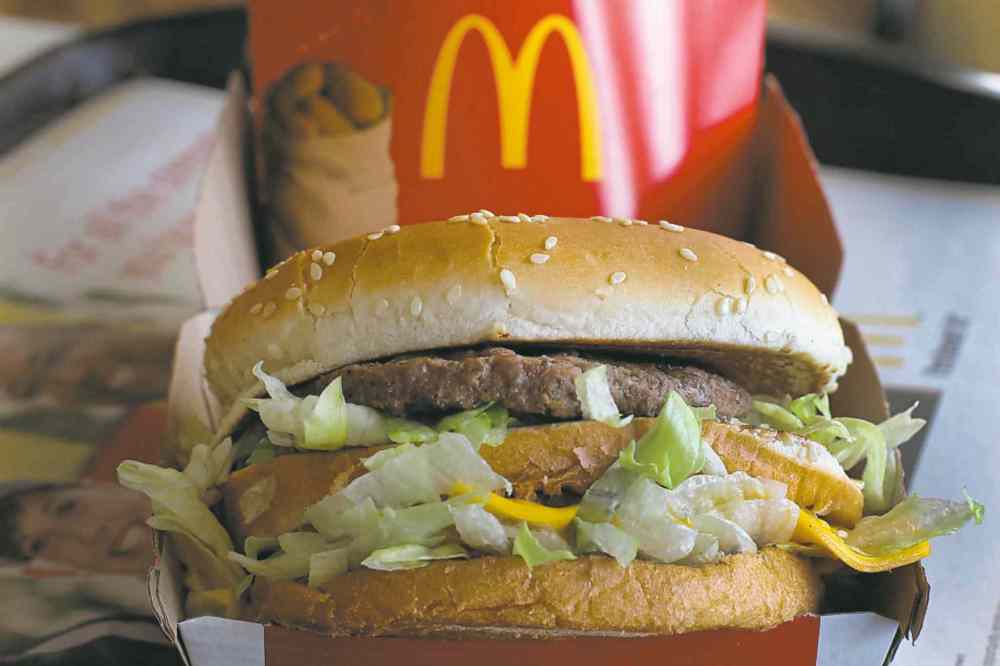McDonald’s takes bite out of bad press
Advertisement
Read this article for free:
or
Already have an account? Log in here »
To continue reading, please subscribe:
Monthly Digital Subscription
$1 per week for 24 weeks*
- Enjoy unlimited reading on winnipegfreepress.com
- Read the E-Edition, our digital replica newspaper
- Access News Break, our award-winning app
- Play interactive puzzles
*Billed as $4.00 plus GST every four weeks. After 24 weeks, price increases to the regular rate of $19.00 plus GST every four weeks. Offer available to new and qualified returning subscribers only. Cancel any time.
Monthly Digital Subscription
$4.75/week*
- Enjoy unlimited reading on winnipegfreepress.com
- Read the E-Edition, our digital replica newspaper
- Access News Break, our award-winning app
- Play interactive puzzles
*Billed as $19 plus GST every four weeks. Cancel any time.
To continue reading, please subscribe:
Add Winnipeg Free Press access to your Brandon Sun subscription for only
$1 for the first 4 weeks*
*$1 will be added to your next bill. After your 4 weeks access is complete your rate will increase by $0.00 a X percent off the regular rate.
Read unlimited articles for free today:
or
Already have an account? Log in here »
Hey there, time traveller!
This article was published 15/10/2014 (4008 days ago), so information in it may no longer be current.
NEW YORK — McDonald’s wants to explain why its burgers may not rot and there are no worms in its beef.
The world’s biggest hamburger chain is confronting unappetizing questions as part of a U.S. campaign to beat back perceptions it serves Frankenfood.
The company has run similar campaigns in Canada and Australia and said Monday it’s bringing the effort to its flagship market.

The push comes as McDonald’s fights to boost its performance in the U.S., where sales slid 1.5 per cent at established locations in the most recent quarter, following a 0.2 per cent dip last year. In addition to increased competition, McDonald’s is trying to keep up with changing tastes, with places such as Chipotle marketing their food as more wholesome alternatives.
To improve the image of its food, McDonald’s recently rolled out chicken wraps with sliced cucumbers and the option to substitute egg whites in breakfast sandwiches. It also plans to eventually let people swap out the french fries in value meals with options such as salad or vegetables.
For its latest campaign, among the first issues McDonald’s addresses are widely circulated online images and videos that show its burgers staying intact after several weeks or even years. On its web page, McDonald’s says that’s likely because the food has dehydrated and food needs moisture to form mould. The company’s responses to other questions such as “Does McDonald’s beef contain worms?” are more direct: “No. Gross! End of story.”
A video posted on the company’s home page also showed Grant Imahara, a former host of the TV show Mythbusters, touring a Cargill beef plant where McDonald’s patties are made.
“Are there lips and eyeballs in there, Jimmy?” Imahara asks a plant supervisor, who explains the patties only have beef trimmings. Another guide says the patties do not contain lean, finely textured beef, an ingredient widely referred to as “pink slime” that became the subject of controversy a few years ago. McDonald’s stopped using the ingredient about three years ago.
Ben Stringfellow, vice-president of communications for McDonald’s USA, said in a phone interview the campaign is a new way of engaging with customers more directly. He noted people are demanding more information about products across the board, not just from McDonald’s.
“In many ways, it’s the way the world is going,” he said.
McDonald’s said people can submit questions via social media sites such as Twitter and Facebook. The company plans to respond to the most common questions with videos or other posts, as well as responding one-on-one to questions, Stringfellow said.
Laura Ries, a marketing consultant based in Atlanta, noted McDonald’s risks bringing up unappetizing thoughts some people may never have heard about.
“I didn’t know people thought there were worms in its beef, or that they didn’t use real chicken,” Ries said.
— The Associated Press

